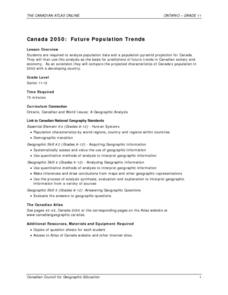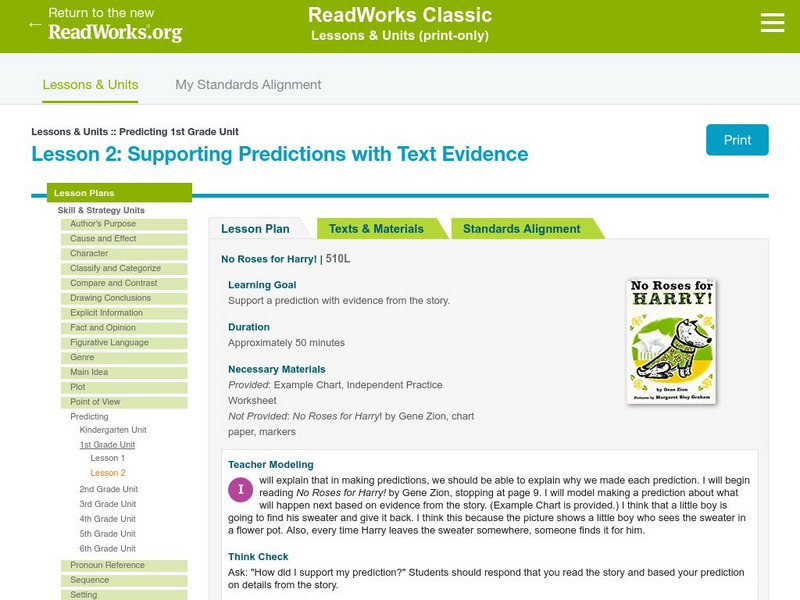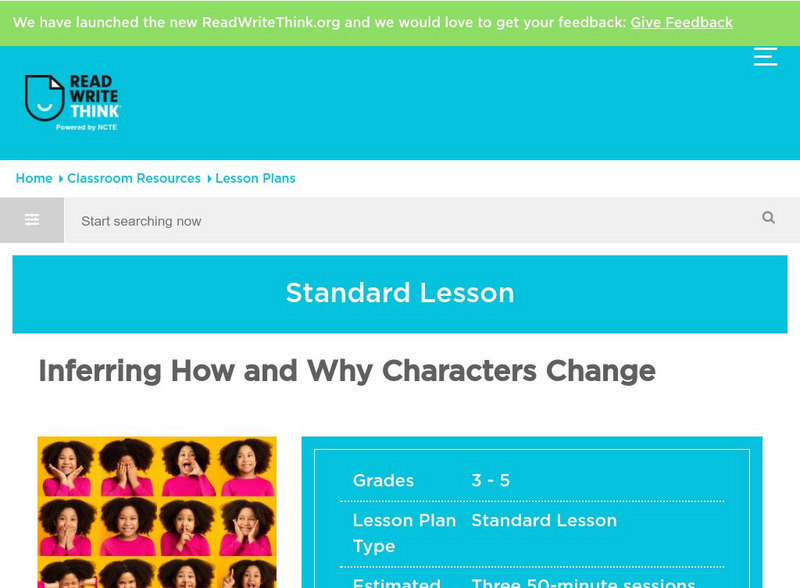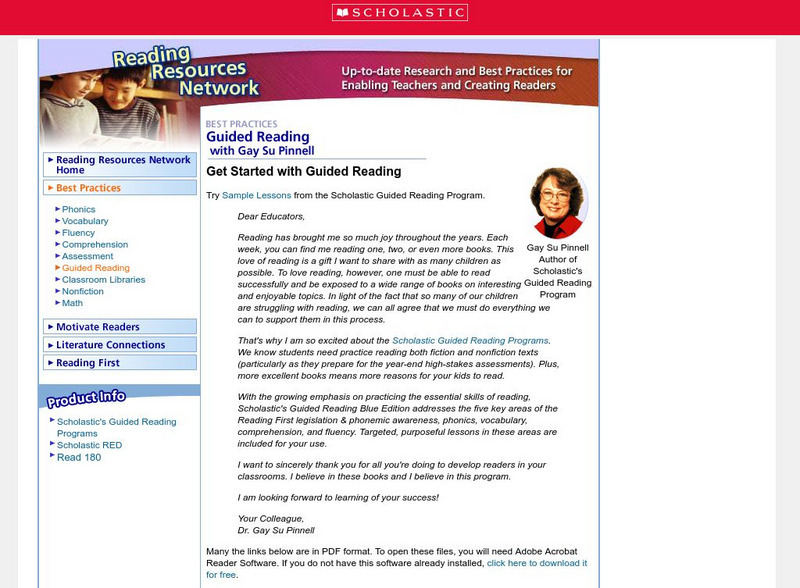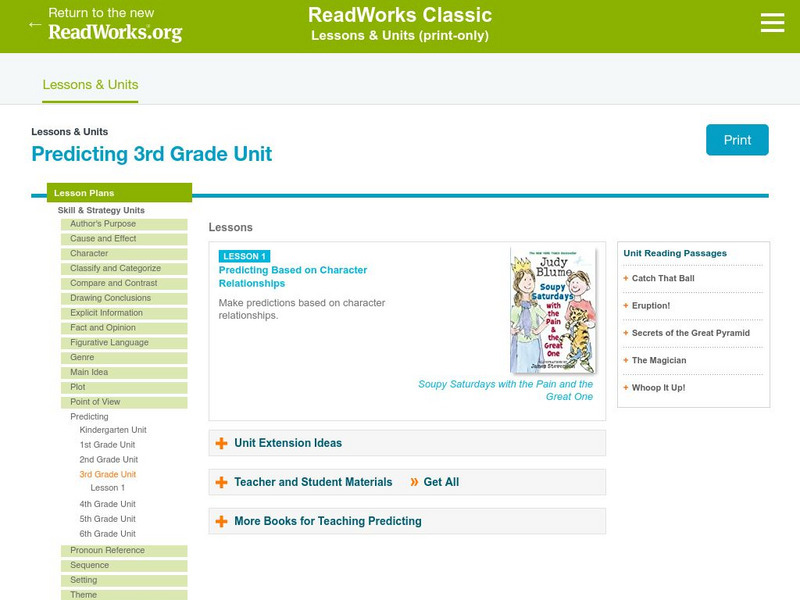Curated OER
Water Quality
Students investigate the water cycle and evaporation. They study the porosity and permeability of groundwater, and the capillary action in soil in this unit.
Curated OER
Microbial Contaminants in Drinking Water
When presented with three unopened bottles of water, young scholars are asked to tell decide which one is contaminated with a microbe. Students work in small groups and role play being a Microbiologist, a patient, or a recorder. The...
Curated OER
Canada 2050: Future Population Trends
Students analyze population data and a population pyramid projection for Canada. Using this information, they predict what the future trends in the population might be and its effect on Canadian society as a whole. They compare and...
Curated OER
Inventors Unit Survey
Students develop and conduct a survey for their inventors unit. They create a five question survey and tally the survey results, and create a graph using Microsoft Word and Graph Club 2.0.
Curated OER
Cloning and Related Issues
Eighth graders research information on cloning and the surrounding issues online. They analyze the issues surrounding cloning and present their point of view with supporting details in a Powerpoint presentation.
Curated OER
Testing Weather Proverbs
Students study weather proverbs. In this weather lesson, students list weather proverbs and complete the worksheet to test the proverb. Students design an experiment to test the weather proverbs and conduct the experiments.
Better Lesson
Better Lesson: Introduction to Making Predictions and Inferences
First graders will engage in a shared reading of "Mr. C's Dinner" so that we can build a foundation for understanding what it takes to make good predictions and inferences.
Read Works
Read Works: 1st Grade Unit: Supporting Predictions
[Free Registration/Login Required] A lesson utilizing the book No Roses for Harry! by Gene Zionin in which students make a prediction and then support it with details from the text. Ideas for direct teaching, guided practice, and...
ReadWriteThink
Read Write Think: How and Why Characters Change
This lesson plan examines and makes inferences into the change and development in characters. Included in the lesson plan is an overview, practice, objectives, resources, preparation, and more.
Better Lesson
Better Lesson: Using Word and Picture Clues to Make an Inference
First graders will use text evidence to make inferences about word and word phrase meanings in a text. Word and picture clues will be used to help students form inferences.
Scholastic
Scholastic: Getting Started With Guided Reading
How do you get started with guided reading? At this site one can find the answer to this question. The online lesson plans will help get students started with guided reading.
Read Works
Read Works: Predicting 1st Grade Unit
[Free Registration/Login Required] A two-lesson unit designed to teach students to make predictions and support them with details from the text. Lessons are based on the books Wemberly Worried by Kevin Henkes and No Roses for Harry! by...
Read Works
Read Works: Predicting 3rd Grade Unit
[Free Registration/Login Required] This is a lesson plan designed to teach students to make predictions based on relationships between characters. The lesson plan is based on the book Soupy Saturdays with the Pain and the Great One by...
Read Works
Read Works: Drawing Conclusions Kindergarten Unit: Short Story
[Free Registration/Login Required] A lesson plan teaching students to make conclusions based on a sentences and short texts. Students use textual cues to explain how the conclusions were reached. Ideas for direct teaching, guided...
PBS
Pbs Learning Media: Walmart Middle School Litercy Initiative
Interactive, student-paced lessons on such literacy skills as categorizing, comparing and contrasting, summarizing, evaluating, determining cause and effect, using text features, connecting, inferring, sequencing, understanding problems...
National Endowment for the Humanities
Neh: Edsit Ement: Animal Farm: Allegory and the Art of Persuasion
This lesson plan will introduce students to the concept of allegory by using George Orwell's widely read novella, Animal Farm. Through this novel, students will learn what an allegory is, the rhetorical components of an allegory, and...




